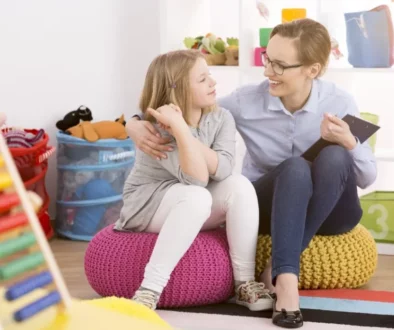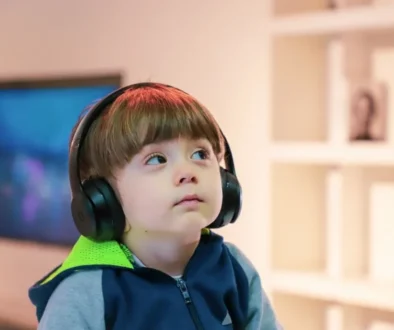What Is the Modified Checklist for Autism in Toddlers?
There’s little more exciting and entertaining than watching a baby develop into a toddler. You get to see them learn to walk, talk, and discover the world.
But what do you do when you suspect that your toddler isn’t hitting their developmental milestones? What if your toddler is more than just the average amount of odd?
Early detection for autism will help you determine if there’s cause for concern. When you can detect autism in toddlers, you can begin therapy for autism early on and help parents learn how to work best with their children. Early screening such as the M-CHAT or Modified Checklist for Autism in Toddlers helps parents determine if they should have their child evaluated fully for autism to see if they’re on the spectrum.
By the time you’ve finished reading this article, you will understand the autism spectrum as well as why how the M-Chat screening works and how this screening questionnaire can help families who have a child with autism.
What Is Autism?
Autism or autism spectrum disorder refers to the condition characterized by repetitive behaviors, challenges with speech as well as nonverbal communication, and challenges with social skills. Studies suggest that one in every forty-four children has autism or is on the autism spectrum in the United States.
Because the autism spectrum is so broad, each person with autism has their own challenges. Some individuals are non-verbal and have severe challenges problem solving, learning, and thinking. Others learn to live independently with individuals around them unaware of their disorder.
The signs of autism appear during the toddler years. Sometimes parents will detect developmental delays even with diagnoses possibly in children as young as 18 months. Early intervention can help individuals with autism to have positive outcomes that will affect them later in life. Such outcomes make early detection even more important.
What Is the Modified Checklist For Autism In Toddlers?
The modified checklist for autism in toddlers or the M-Chat screening is a series of 20 questions on a screening questionnaire. This screening helps parents determine if their child needs a full ASD diagnostic evaluation with a physician to determine if they have autism spectrum disorder.
Doctors designed the M-CHAT specifically for toddlers between the ages of 16 and 30 months old. The final results let parents know if they should seek further evaluation. If you take the M-CHAT and still have concerns, you can talk to your child’s healthcare provider about these concerns.
The doctor may then still conduct the ASD diagnostic evaluation to determine if your child is on the spectrum.
Why Early Screening Matters
Healthcare providers will often delay an autism diagnosis even if parents express concern. Thus the actual diagnosis could take up to three years.
Later diagnoses also mean delayed therapy and intervention. Early ABA or Applied Behavior Analysis therapy helps both children and families have positive outcomes.
With AGA, toddlers learn how to practice social skills such as interacting with their peers, making eye contact, and conversing with others. These are all skills that children typically learn naturally, but a child with autism needs extra support to learn these skills.
Additionally, children with autism avoid conversation and human interaction. When a child receives an autism diagnosis, parents can learn the necessary skills for how to interact and converse with their child.
How to Use M-Chat
The purpose of M-CHAT screening is to help parents determine if their child needs further evaluation. It is not a final diagnosis. If a parent notices their child isn’t hitting milestones like the toddlers around them, they can go through the 20-question screening to determine if their child is at risk for autism.
If your child fails the M-CHAT, they may or may not have autism. If a doctor does not diagnose your child with autism, they still may have developmental delays that you need to have addressed. A medical doctor or qualified psychologist can detect and then diagnose these developmental challenges.
The M-CHAT is simple and quick. You can have a score in less than two minutes. If your child fails three or more of the total items or two or more of the key items, you should seek a doctor who can give your child a full evaluation.
Is M-CHAT Screening Reliable?
The M-CHAT screening is not a conclusive diagnosis. It does, however, reveal warning signs. The checklist is specifically for parents to conduct a personal evaluation.
If you use the M-CHAT, use it with these thoughts in mind. You will still need to take your child to a medical expert with experience diagnosing autism.
Challenges with M-CHAT
The M-CHAT questionnaire is just the early detection for children who may be at risk for autism. It can help countless parents and doctors notice symptoms that otherwise have gone unnoticed.
The follow-up questions after the M-CHAT can take some time, though. And unfortunately, few pediatric care centers have the staff and time needed to conduct this screening. Furthermore, many physicians fail to conduct the follow-up because they do not understand the relevance of the questions.
Additionally, some parents can mis-score the questionnaires because they do not understand how the scoring works. These obstacles are the holes in the screening process and affect the reliability of the evaluation overall.
Screen and Move Forward
Detecting autism in toddlers takes time. But you can begin the process with the simplicity of the M-CHAT or the modified checklist for autism in toddlers. This simple questionnaire can help parents determine if they should seek further counseling on their child’s development.
Early screening will allow parents to receive the support they need for positive future outcomes.
Do you see developmental delays in your toddler? Do you suspect that your toddler may have autism or be on the autism spectrum? If so, contact us for a new patient evaluation.
Our caring physicians can walk you through the M-CHAT and conduct the further evaluation. We seek to provide our patients with the best telemedicine experiences in Texas. Give us a call today.



